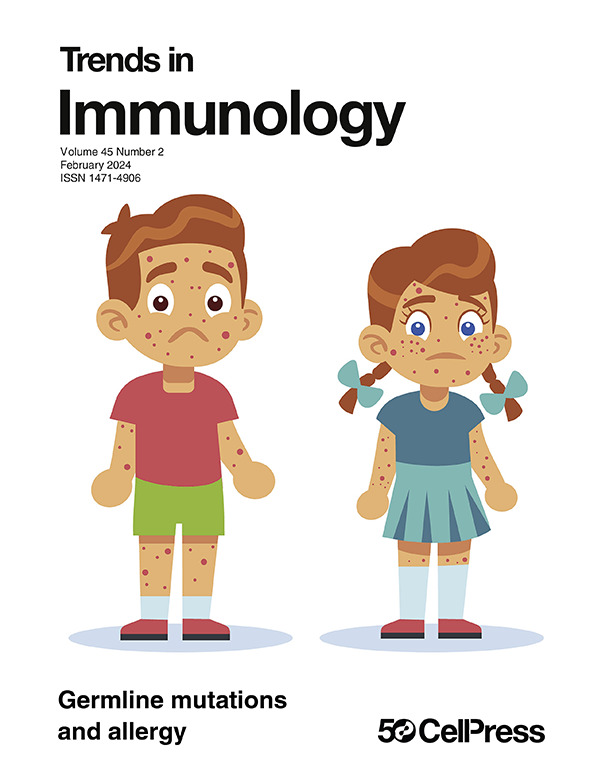突变 ARID1A:点燃癌症免疫疗法的火种
IF 13.1
1区 医学
Q1 IMMUNOLOGY
引用次数: 0
摘要
Maxwell 等人的研究表明,ARID1A 的缺失可通过 cGAS-STING 通路触发 I 型 IFN 反应,从而促进 T 细胞浸润和细胞毒性,从而增强抗肿瘤免疫力。这些发现突出表明,SWI/SNF 抑制剂是一种增强免疫疗法疗效的策略,它有可能将无反应的肿瘤转变为有反应的肿瘤,并推进癌症治疗方法的发展。本文章由计算机程序翻译,如有差异,请以英文原文为准。
Mutant ARID1A: igniting cancer immunotherapy
Maxwell et al. show that ARID1A loss enhances antitumor immunity by triggering a type I IFN response through the cGAS–STING pathway, thereby promoting T cell infiltration and cytotoxicity. These findings highlight SWI/SNF inhibitors as a strategy to augment immunotherapy efficacy by potentially transforming non-responsive tumors into responders and advancing approaches to cancer treatment.
求助全文
通过发布文献求助,成功后即可免费获取论文全文。
去求助
来源期刊

Trends in Immunology
医学-免疫学
CiteScore
25.10
自引率
0.60%
发文量
130
审稿时长
6-12 weeks
期刊介绍:
Trends in Immunology serves as a vital platform for tracking advancements across various areas of immunology, offering concise reviews and hypothesis-driven viewpoints in each issue. With additional sections providing comprehensive coverage, the journal offers a holistic view of immunology. This broad perspective makes it an invaluable resource for researchers, educators, and students, facilitating the connection between basic and clinical immunology. Recognized as one of the top monthly review journals in its field, Trends in Immunology is highly regarded by the scientific community.
 求助内容:
求助内容: 应助结果提醒方式:
应助结果提醒方式:


